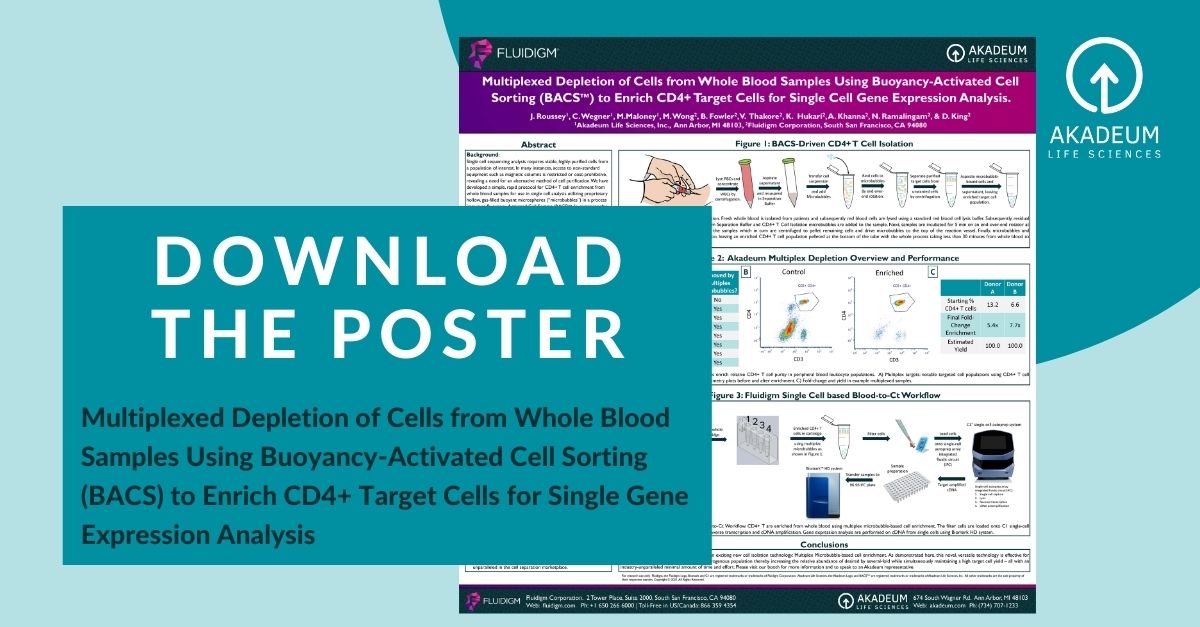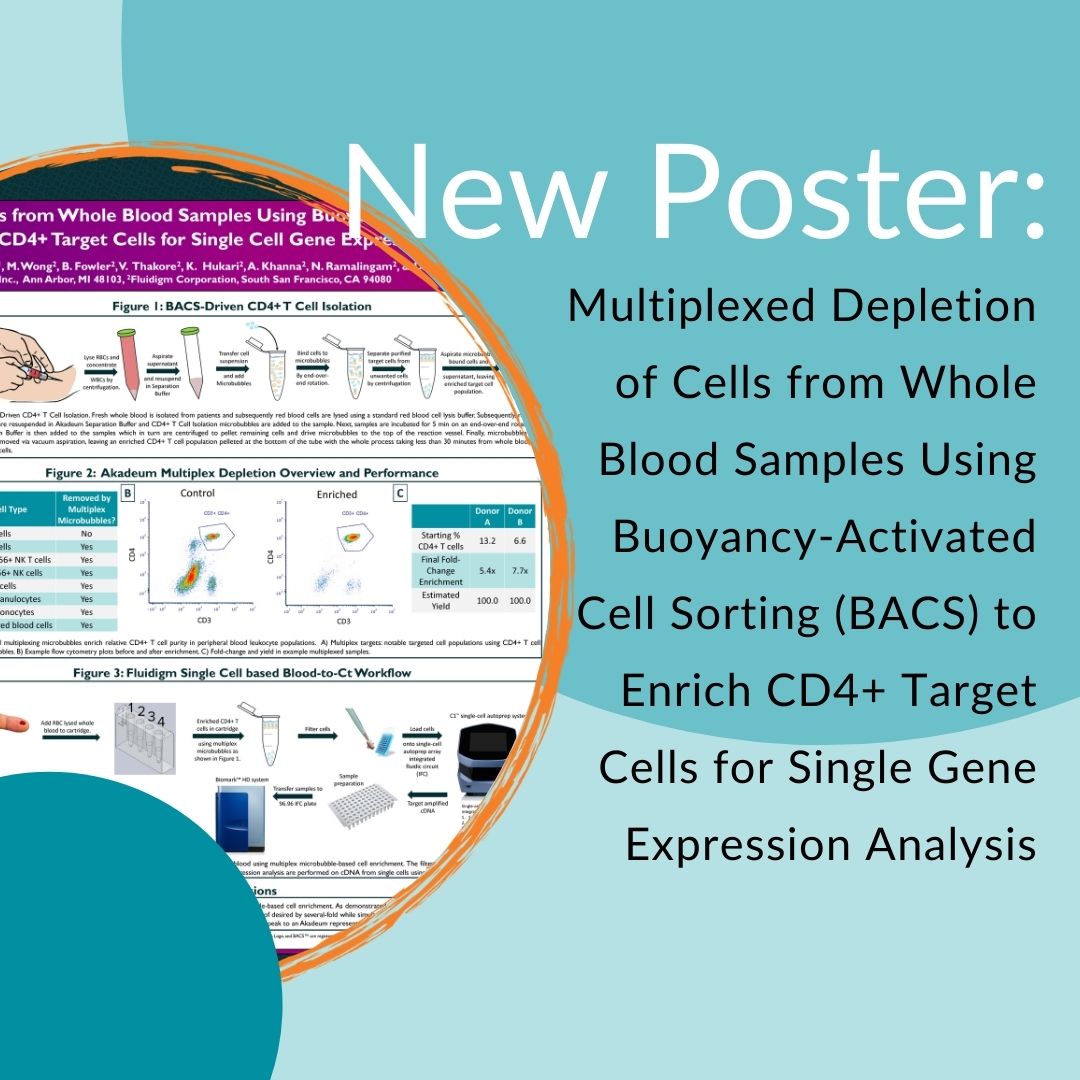Gene Expression Poster: Multiplexed Depletion of Cells From Whole Blood Samples Using BACS to Enrich CD4+ Target Cells
Updated on Sep 25, 2024 Share
- New Poster from Akadeum, in collaboration with Fluidigm: Multiplexed Depletion of Cells from Whole Blood Samples Using Buoyancy-Activated Cell Sorting (BACS) to Enrich CD4+ Target Cells for Single Gene Expression Analysis
Akadeum was honored to present a poster at this year’s CYTO Virtual Interactive 2021 in collaboration with Fluidigm that showcases a novel and groundbreaking multiplexed use for our revolutionary microbubble technology.

Single cell sequencing analysis requires viable, highly-purified cells from a population of interest. In many instances, access to non-standard equipment such as magnetic columns is restricted or cost-prohibitive, revealing a need for an alternative method of cell purification. We have developed a simple, rapid protocol for CD4+ T cell enrichment from whole blood samples for use in single cell analysis utilizing proprietary hollow, gas-filled buoyant microspheres (“microbubbles”) in a process known as Buoyancy-Activated Cell Sorting (BACS™). In particular, this method of isolation can be integrated with Fluidigm single-cell analysis workflow to rapidly and reliably isolate, process, and profile individual cells for a multitude of downstream applications.
Results:
Initial studies reveal a microbubble conjugation system compatible with a wide range of antibodies; singleplex microbubbles functionalized for cellular targets including CD8, CD16, CD36, and CD235ab consistently show high depletion efficiency when used with peripheral blood leukocytes. Subsequent development has yielded multiplex microbubbles capable of effectively depleting multiple target cell populations simultaneously, ultimately leading to purified CD4+ T cells from peripheral blood in ~25 minutes total processing time. A majority of the cells expressed CD4+ T-cell signatures and expressed a vast range of targeted genes, forming unique genomic profiles for each cell.



